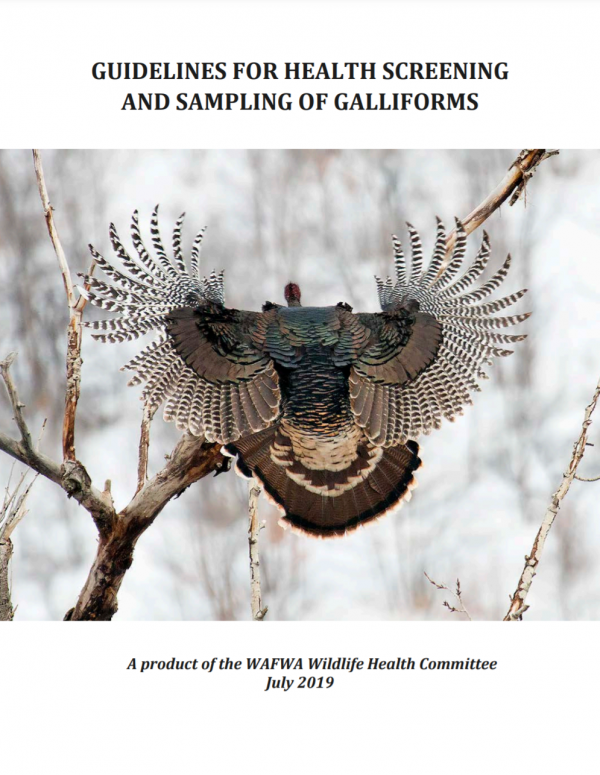Upland game birds are captured and relocated within and between jurisdictions to facilitate a variety of management goals. The movement of wildlife carries the risk of transportation of pathogens to novel environments or populations; as well as the potential for naïve animals contracting disease when exposed to novel pathogens after relocation. Disease surveillance is therefore an important component of all relocation projects.
This document is designed to provide guidelines for diagnostic testing procedures that can inform management decisions, while at the same time protecting the health of wild bird flocks as well as reducing the risk of pathogen transmission to domestic poultry flocks. Although these guidelines were developed primarily for use by jurisdictions affiliated with the Western Association of Fish and Wildlife Agencies (WAFWA), some may have broader application. The gallinaceous species groups covered in this protocol are pheasants, grouse, quail, turkeys, prairie chickens and chukars.
Suggested citation: Western Association of Fish and Wildlife Agencies. 2019. Guidelines for health screening and handling of galliforms. WAFWA Wildlife Health Committee, Fort Collins, Colorado, USA.
A product of the WAFWA Wildlife Health Committee, July 2019.
Attached Files
| File | Action |
|---|---|
| Galliform Health Screening Guidelines v2019.pdf | Download |
- Version
- File Type pdf
- File Size 1.38 MB
- Publication Date July 1, 2019
- Download Count (since 10/2020) [3505]
